National News
-
Centre clarifies on definition of land as forest
The Forest Advisory Committee(FAC) of the Environment Ministry has said that the States need not take the Centre’s approval to define what constitutes unclassified land as forest.
The committee has said that the states have well established forest departments.
The criteria framed by the states for their forests should not be subject to approval by Union Environment Ministry.
The committee has also referred to the 1996 Supreme Court judgment which has allowed states to define what constitutes unclassified land as forest. The Supreme Court judgment in 1996 had expanded the definition of forest to include lands that were already notified by the Centre as forests lands that appear in government records as forests and those that fell in the dictionary definition of forest.
The court had allowed the States to evolve their own criteria and define tracts of land as forest and these would then be bound by forest conservation laws.
The court had also said that all-encompassing definition of forest wasn’t possible for India because the country has 16 different kinds of forest.
It said that a tract of grassland in one State might qualify in one region as forest but not in another.
-
Col Chewang Rinchen Setu: India's highest altitude all-weather permanent bridge in eastern Ladakh
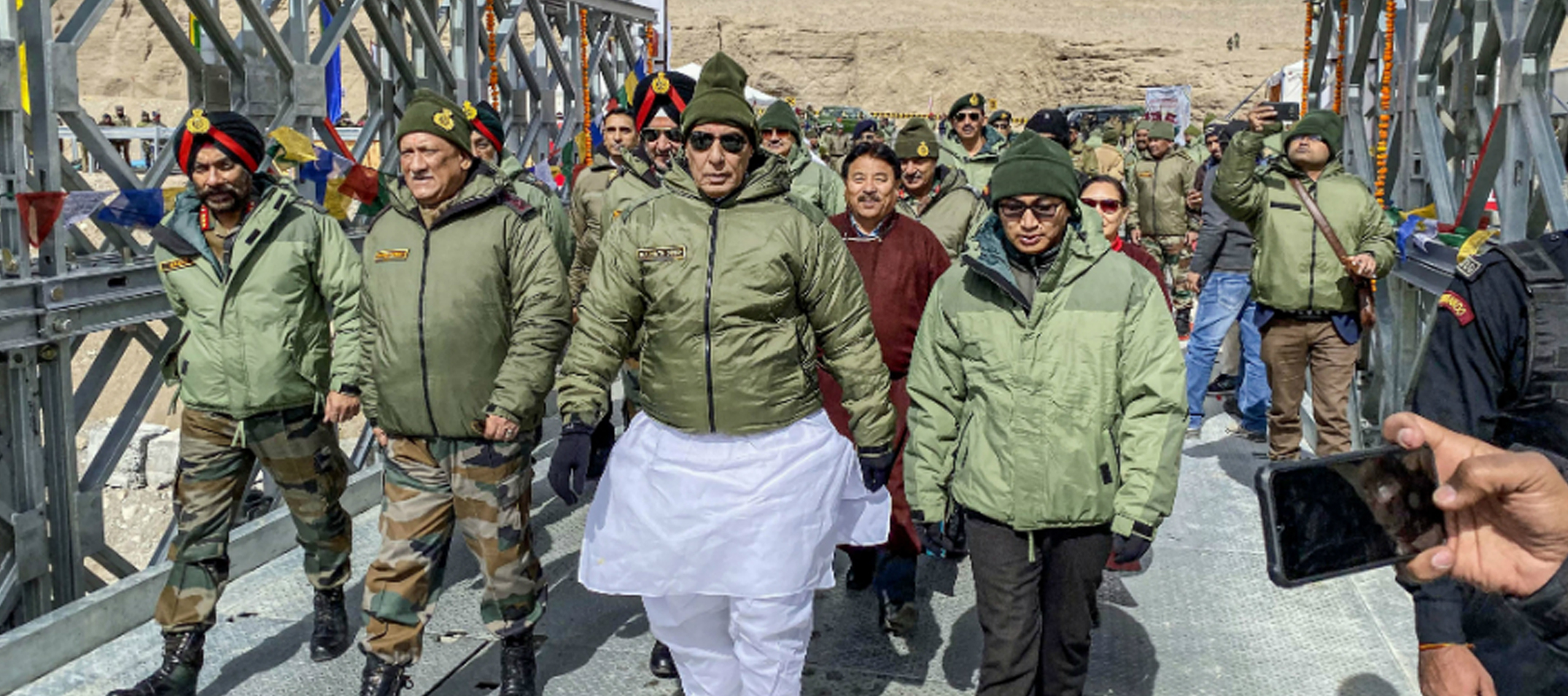
Col Chewang Rinchen Setu was inaugurated by Defence Minister Rajnath Singh and is India's highest altitude all-weather permanent bridge. It is located in eastern Ladakh at nearly 45 km from the country's border with China.
It is a 1400-ft -long bridge on Shyok River, and is situated at 14,650 ft and named after 'Lion of Ladakh' Col Chewang Rinchen. The bridge, officially named 'Col Chewang Rinchen Setu' is strategically located on the 255-km Darbuk-Shayok-Daulat Beg Oldie (DSDBO) section of the road between Leh and Karakoram Pass. The bridge's superstructure is called 'Extra Wide Bailey Bridge' and it has 10 spans of 140 ft each and its width is 4.25 m, said senior officials of the Border Roads Organisation which built it in 15 months. It will reduce time of travel by nearly half.
The bridge is sandwiched between strategic Karakoram and Chang Chenmo ranges.
Col Rinchen was born on November 11, 1931 at Sumur village, Nubra Valley in Ladakh region, and is known as the 'Lion of Ladakh' for his extraordinary acts of courage in defending Leh and Partapur sector. He is one of only six armed forces personnel to have been twice awarded the Maha Vir Chakra, the second highest gallantry award in the country.
-
Govt Attempt to Build the World's Biggest Facial Recognition System
In an ambitious plan to curb soaring crime rates, the government is in the works of building the world’s largest facial recognition system – a centralized database – accessible to police across all states of the country that would match images from the network of CCTV cameras against a database encompassing criminal records. Authorities in many states, including Andhra Pradesh and Punjab, had adopted the facial recognition technology in 2018 to fight crime.
This proposed network will encompass mug shots of criminals, passport photos and images collected by agencies such as the Ministry of Women and Child Development. This unnamed project will also enable the police to initiate searches based on photos uploaded from newspapers, images in the public domain and even give access to artist sketches of suspects. It would recognize faces on closed-circuit cameras and "generate alerts if a blacklist match is found," according to the tender document. Security forces would be equipped with hand-held mobile devices enabling them to capture a face in the field and search it instantly against the national database, through a dedicated app. China has already taken a lead in adopting facial recognition technology, using it for airport security, crime prevention and traffic control. The technology not only assists law enforcement officers and other authorities, but also motivates people to “behave well, promoting good civic habits”.
-
India and UK build Pepe-"Hand-Washing Robot" Inspiring Students On Sanitation
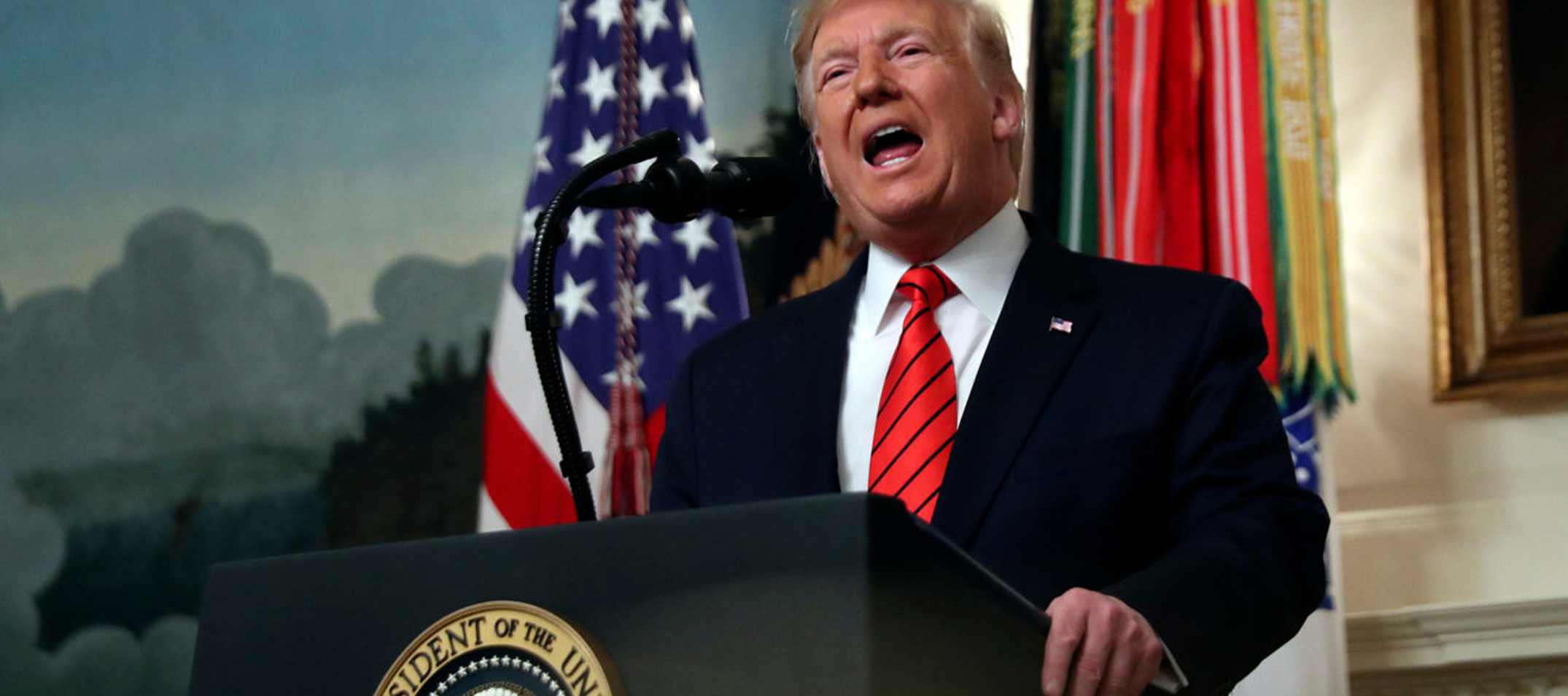
A collaboration between researchers from the UK and India has resulted in a new robot which encourages children to wash their hands. The robot, named Pepe, was recently used by pupils at a primary school in Kerala as a fresh approach to hygiene.
Pepe was mounted to the wall above a hand washing station at the Wayanad Government Primary School, which has around 100 pupils aged between five and 10. A small video screen mounted behind Pepe's green plastic exterior acted as a “mouth”, allowing researchers to tele-operate the robot to speak to the pupils and draw their attention to a poster outlining the steps of effective handwashing.
-
Centre seeks states’ advice on criminal justice system revamp
To ensure speedy justice and simplify legal processes, Union home minister Amit Shah has sought suggestions from state governments on changes that may be required in four key criminal justice laws – the Indian Penal Code (IPC), Code of Criminal Procedure (CrPC), Arms Act and the Narcotics Drugs and Psychotropic Substances Act (NDPS).
The Indian Penal Code was enacted in 1860, CrPC in 1973, Arms Act in 1959 and NDPS in 1985.
In 2018, through the Criminal Law (Amendment) Act, the laws for crime against women were made stricter. In 2019, amendments were made in the Unlawful Activities (Prevention) Act 1967; and the National Investigation Agency Act, 2008, the letter said.
According to Commonwealth Human Rights Initiative (CHRI), police reforms and other criminal justice laws have been pending since 1996, when a model police law was suggested by a Padmanabhaiah Committee. In 2016, the Supreme Court also urged the Centre and states to reform police laws while disposing of a plea by former Uttar Pradesh director general of police Prakash Singh.
-
From 2021, no Assam govt jobs for those with more than two children
The Assam Cabinet decided that no government jobs will be given to persons having more than two children after January 1, 2021. A communique from the Chief Minister Sarbananda Sonowal’s public relations cell stated that those having more than two children will not be considered for government jobs with effect from January 1, 2021 as per the small family norm. In September 2017, the Assam Assembly had passed the ‘Population and Women Empowerment Policy of Assam’ that specified that job candidates with two children only would be eligible for government employment and the existing government staff were to strictly follow the two children family norm.
-
Govt launches e-Portal to push cultural education
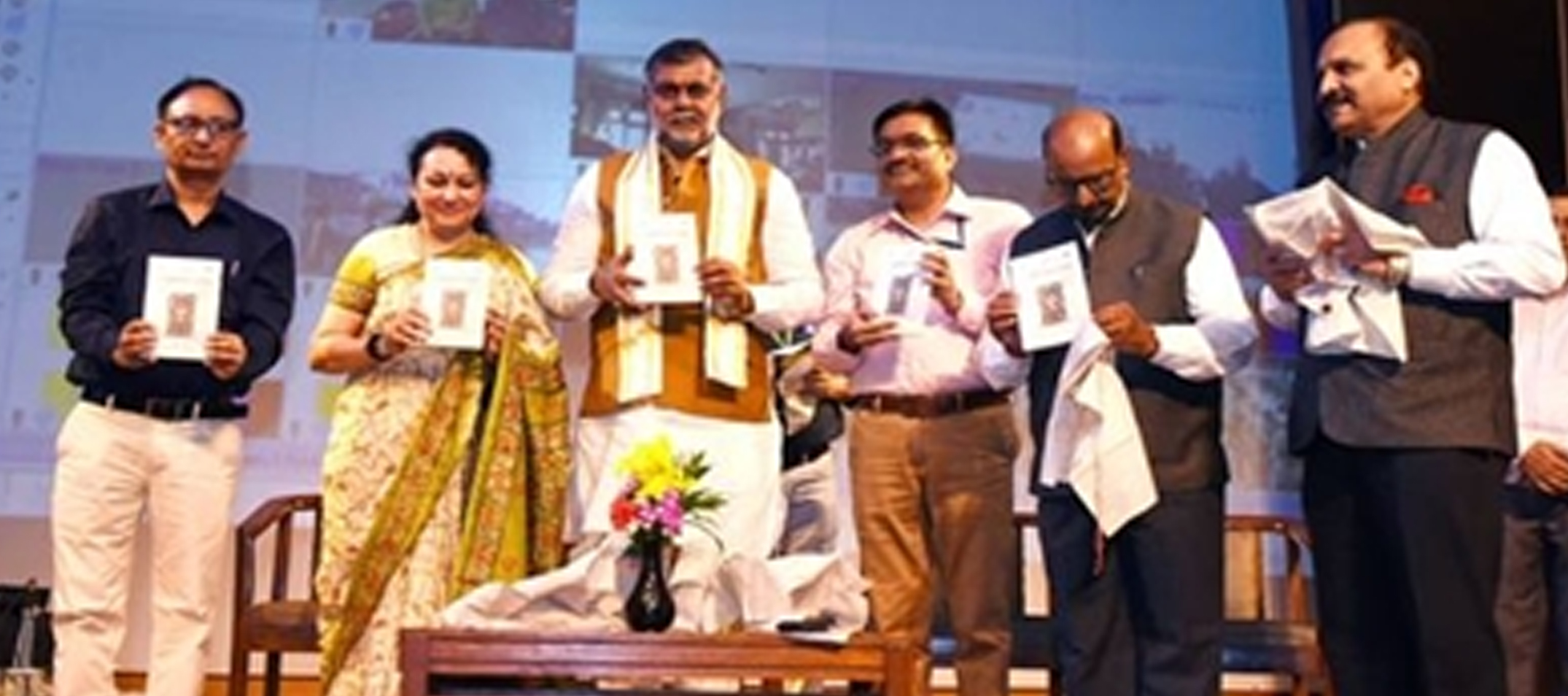
Union Minister of State for Culture and Tourism, Prahlad Singh Patel launched the e-Portal of Centre for Cultural Resources and Training (CCRT) ‘Digital Bharat Digital Sanskriti’ and CCRT YouTube Channel to promote cultural education through digital interactive medium. The CCRT, chairperson Hemlata S Mohan was also present during the launch. This will enable dissemination of cultural education through digital interactive medium into classrooms all over the country. For this initiative, CCRT has tied up with Routes 2 Roots, an NGO, for connecting seamlessly all the CCRT Regional Centres including Guwahati, Udaipur and Hyderabad. Each and every child has a latent talent which needs to be identified. CCRT should provide a platform for specifically dropout children so that they can join the mainstream so that they can pursue their dreams and make a career out of it be it music, painting, theatre, martial arts or any other art forms.
-
Siachen area, world's highest battlefield, now open to tourists
Government announced that Siachen area, the world's highest battlefield, is now open to tourists. Defence Minister Rajnath Singh said the government has decided to open the entire area from Siachen base camp to Kumar Post for tourism purposes. The step has been taken to boost tourism in Ladakh and give people a window to appreciate the tough work done by Army jawans and engineers in extreme weather and inhospitable terrains.
The Siachen Glacier at the height of around 20,000 ft in the Karakoram range is known as the highest militarised zone in the world where the soldiers have to battle frostbite and high winds Avalanches and landslides are common at the glacier during the winters and temperatures can drop to as low as minus 60 degrees Celsius
The Indian Army had moved a proposal for opening up Siachen to tourists with a focus to showcase the working conditions of troops serving in the sector, and the government gave its nod. According to official figures, the Army lost 163 personnel at the world's highest battlefield during the last 10 years. India and Pakistan started deploying troops at the strategically key glacier in 1984 and mountaineering expeditions were allowed till then. The Glacier came under the strategic control of India in 1984 following 'Operation Meghdoot'.
-
Heads of 91 Foreign Missions visit Golden Temple
The delegation of the Heads of 91 Foreign Missions in India reached at Amritsar to pay obeisance at Shri Har Mandir Sahib in connection to celebrations of 550th Prakash Purab of Shri Guru Nanak Dev Ji. The delegation was taken to heritage street, where the delegation witnessed the playing of Gatka, a popular Sikh martial art. The delegation also visited the Partition Museum related to partition of India in 1947. The visit comes in the wake of the decision by the Union Cabinet to celebrate the 550th Birth Anniversary of Shri Guru Nanak Devji on 12th of next month throughout the country and across the globe, in a grand and befitting manner. The visit has been organized by the Indian Council for Cultural Relations (ICCR) in collaboration with the State Government of Punjab and the Shiromani Gurudwara Parbandhak Committee.
-
Karnataka govt approves ?667 cr for Nirbhaya fund
The Karnataka government approved ?667 crore for various projects for women’s safety, including the installation of 7,500 cameras in Bengaluru, under the Nirbhaya Fund. This will include the installation of street lights, cameras, panic buttons that will be monitored round the clock by a command and control centre. Under the scheme, to be implemented in phases over three years, the authorities propose to have a total of 16000 cameras that include day/night surveillance, fixed cameras, automated number plate recognition (ANPR),
Facial recognition cameras, drone based and even body worn cameras among other types. The cabinet approval comes a day after the National Crime Records Bureau released data for 2017 showing a rise in crimes against women across India. The Centre’s safe city proposal comprises eight cities, including Bengaluru, Delhi, Mumbai, Chennai, Hyderabad, Lucknow, Ahmedabad and Kolkata. Madhuswamy said the Centre will foot 60% of the project cost, while 40% will be borne by the state. However, CCTV surveillance infrastructure have not been of much help in deterring criminals in Bengaluru due to poor maintenance and quality of equipment.
-
CBSE, NCERT to launch 'Tamanna' aptitude test for Class 9, 10 students soon
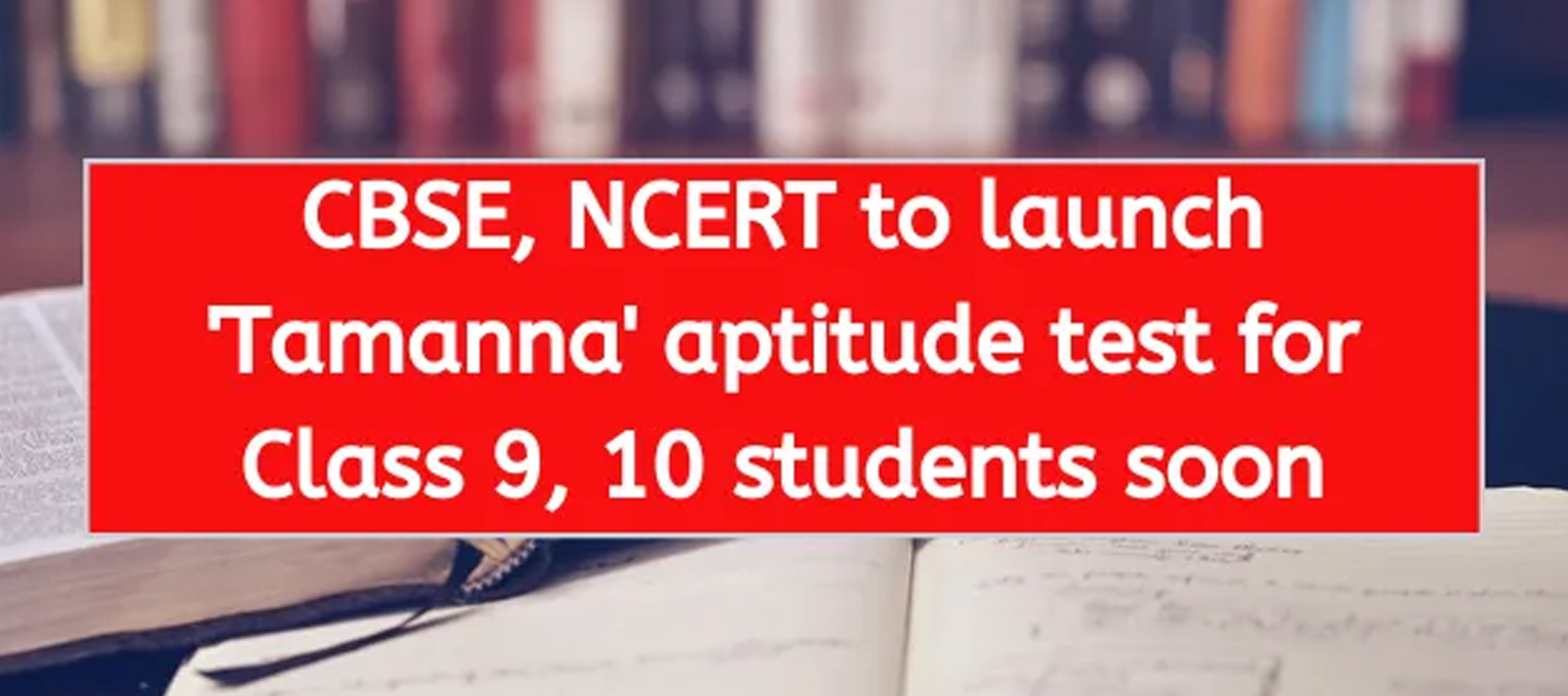
In a bid to help students make the right career choices, the Central Board of Secondary Education (CBSE) and National Council for Educational Research and Training (NCERT) have launched an online aptitude test called as ‘Tamanna’ (Try And Measure Aptitude And Natural Abilities). Tamanna is an aptitude test that aims at helping students of Class 9 and 10 make a better choice of subjects, eventually helping them in making an informed decision while choosing subjects in Class 11 and 12. In short, the CBSE (Know your aptitude) KYA exam will assess a student's weaknesses and strengths in academics.
-
Kanya Sumangala Yojana launched in UP for families with girl child
The Uttar Pradesh CM Yogi Adityanath launched the government’s flagship scheme 'Mukhya Mantri Kanya Sumangala Yojana' on October 25, 2019. Kanya Sumangala yojana will provide a fund worth Rs 15000 to every family where a girl child is born. The amount will be released to the family in a phased manner. Kanya Sumangala scheme has been designed in a way that the parents will have to take proper care of the girl child with respect to her health and education and other aspects, in order to get the benefit. The funds under the scheme will be released in various installments when the girl child completes various milestones such as at the time of birth, vaccination, admission to Class 1, 5, 9 and graduation.
While launching the Kanya Sumangala Yojana, the UP CM also launched the Kanya Sumangala web portal and conferred symbolic cheques and certificates to some of the beneficiaries. The actual amount, however, will be transferred directly into the accounts of the beneficiaries.
Over 1.25 lakh registrations have already been initiated under the scheme. All girl children born after April 1, 2019 are eligible for the full fund. For the girl children born before April 1, 2019, the date will be used as a cut-off for other levels, in which they will be entitled to receive a part of the fund. For eg, if a girl child has taken admission in Class 1 after April 1, 2019, the funds that would have been released at her birth and completion of first vaccination will be subtracted and the remaining will be given to her in the scheduled installments.
-
Gandhinagar becomes Gujarat’s first kerosene free district
On October 25, 2019, Union Minister Amit Shah allocated 1000 LPG connections to women in Gandhinagar district of Gujarat. This makes Gandhinagar first district in Gujarat to become kerosene-free.
Chandigarh became the first city to become kerosene free. Government has been making plans since 2016 to reduce the usage of kerosene all over the country. The subsidies to kerosene will be completely removed by 2020. By 2018, over 8 states and Union Territories in the country became kerosene free namely Puducherry, Daman-Diu, Dadra Nagar Haveli, Andhra Pradesh, Chandigarh, Delhi, Haryana and Punjab.
-
PM Modi releases book titled ‘Bridgital Nation’
Prime Minister Narendra Modi unveiled a book titled ‘Bridgital Nation: Solving Technology’s People Problem’ in New Delhi on 20 October 2019. He presented books’ first copy to eminent industrialist and philanthropist Ratan Tata. The book has been authored by N Chandrasekaran, Chairman, Tata Sons and Roopa Purushothaman. The book ‘Bridgital Nation’ presents a powerful vision of future where technology and human beings co-exist in a mutually beneficial ecosystem. It stresses that instead of accepting technology as replacement of human labour, India can use it as an aid to generate more jobs. The cutting edge digital tools can act as bridge between aspirations and achievements – hence the term ‘bridgital’.
-
Aarambh: first ever foundation civil service course launched
The GoI has launched the first ever common foundation course called the “Aarambh” for civil servants at the Statue of Unity, Kevadia, Gujarat. Around 500 newly recruited bureaucrats will undergo six-day training. The GoI also launched the “Nurture the Future” at the event. Under this program the civil servants will be divided into teams to visit villages in Kevadia
Each probationer will take a youth under his wing, provide career and professional guidance.
-
2nd batch of Nepali officers start training on anti-money laundering in India
As many as 18 officers of the Nepal government started their training on Anti-Money Laundering and Countering Financing of Terrorism under India's assistance in Bengaluru. The Nepali officers are part of the second group to undergo such a personalised course that aims to enhance their capabilities to effectively deal with the matters pertaining to the subject. The training for the course, which is happening at the National Academy of Customs, Indirect Taxes and Narcotics (NACIN), Bengaluru, was designed by India on the special request of the Nepal Government. It is an example of Government of India's commitment to enhance the capacities of various agencies of the Government of Nepal. The course is fully supported by the Government of India under the Ministry of External Affairs' Indian Technical and Economic Cooperation (ITEC) Programme. The NACIN is a premier training institute of Government of India in the field of financial investigations and anti-money laundering matters with state-of-the-art learning facilities.
-
Indians will no longer require visas to visit Brazil, says its President Jair Bolsonaro
Brazilian President Jair Bolsonaro said that Brazil will drop its requirement that visiting Chinese and Indian tourists or businesspeople obtain visas. Bolsonaro, a far-right politician, came to power at the beginning of the year and has made it a policy to reduce visa requirements from a number of developed countries. But the announcement, made during an official visit to China, is the first he has made expanding that policy to the developing world. Earlier this year, the Brazilian government ended visa requirements for tourists and businesspeople from the United States, Canada, Japan and Australia. Those countries, however, have not in return dropped their visa requirements for Brazilian citizens.
-
India, Nepal, Bhutan plan trans-border conservation area
India, Nepal and Bhutan have drafted a memorandum of understanding to create a a trans-boundary wildlife conservation 'peace park'. The proposed Park will include biodiversity-rich landscapes in adjoining areas of the three countries. The trans-boundary parks present a fundamental shift in which wildlife conservation is done. There is already one trans-boundary Protected Area in India and Bhutan, which includes the Manas landscape of Assam, and the new tripartite park will be an extension of this. This initiative was taken by India keeping in view the migratory wildlife species such as elephant. This project will maintain the natural connectivity of wildlife species, undisturbed by political boundaries. The project will also help the local communities through ecotourism. It will also maintain the traditional and cultural continuity of villages that share similar traditions from time immemorial, but have been separated by the political boundary. In this sense this park will be a harbinger of peace in the area.
-
India launches first protocol to count snow leopard population
Union forest minister Prakash Javadekar launched the country’s first national protocol for enumerating the population of snow leopards, an elusive predator found in the higher reaches of the Himalayas and other mountain ranges of Asia.
Although no count of the endangered big cats have been conducted, estimates provided by various organisations working on snow leopard conservation suggest that there could be around 400- 700 of the predators spread across Himachal Pradesh, Uttarakhand, Sikkim, Arunachal Pradesh and Jammu and Kashmir.
India is now home to around 512 lions, 30,000 elephants and 2,500 one-horned rhinoceros. The number of tigers in the country has also shot up to 2,967 from 2226 in 2014 ,according to the latest census figures. According to the International Union for Conservation of Nature, the population of slow leopards is decreasing and only an estimated 2,700-3300 adults are left in the wild. Climate change, shrinking habitat because of human activity and poaching are cited as some of the reasons for the decline. According to the protocol, India will follow a two-step procedure to count these elusive cats – systematically assessing the spatial distribution of snow leopards and estimating their numbers through camera trapping and genetic evidence. This protocol could also be later used by other range countries.
-
Government notifies new RTI rules
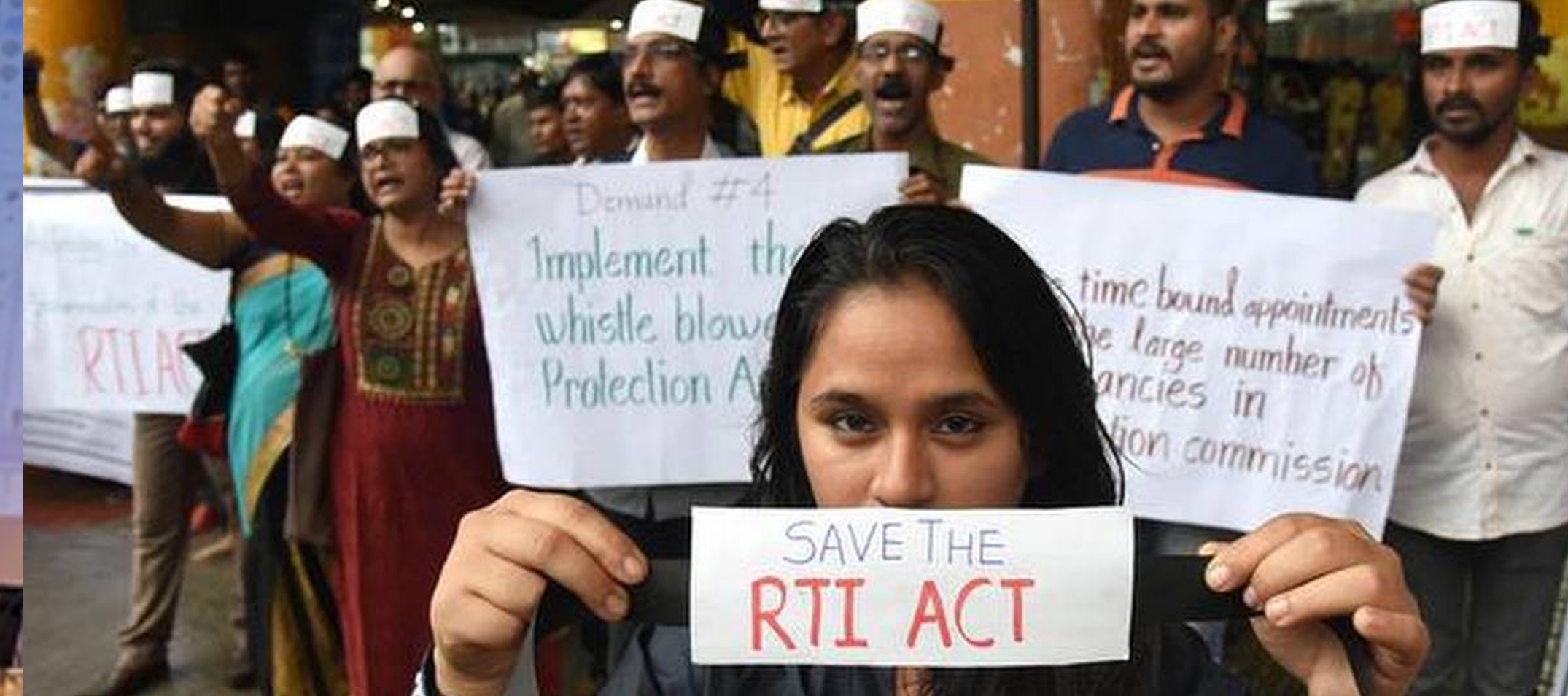
The Ministry of Personnel notified the Right to Information (Term of Office, Salaries, Allowances and Other Terms and Conditions of Service of Chief Information Commissioner, Information Commissioners and State Information Commissioners) Rules, 2019.
The rules have reduced the tenure of Information Commissioners from five years to three. It give the government the discretion to decide on “conditions of service” for which no express provisions are made in the rules. The Chief Information Commissioner’s salary has been fixed at ?2.5 lakh and an Information Commissioner’s at ?2.25 lakh.
-
People over 80 years of age, disabled can now vote through postal ballot
The Law Ministry has amended the Conduct of Election Rules 1961 to give voting and ballot voting to voters with disabilities and those above 80 years of age and include them in the category of 'absentee voters'. In order to increase the vote percentage in the election, the government has provided the facility to the elderly and disabled voters above 80 years to vote with the postal ballot. The Law Ministry has issued a notification to implement this decision on 22 October on the recommendation of the Election Commission.
In the current system, only military, paramilitary personnel and government employees working abroad, as well as employees posted in election duty, are entitled to the postal ballot. According to an estimate, given the substantial number of such voters, the percentage of voting is likely to increase after getting this facility.
International News
-
World's oldest pearl discovered near Abu Dhabi
The world's oldest natural pearl has been discovered on an island off Abu Dhabi, the capital of the United Arab Emirates. The 8,000-year-old pearl was found during excavations at Marawah Island which also revealed the earliest architecture in the UAE. The discovery proved that pearls had been traded in the region since Neolithic times. The pearl will go on display later this month at the Louvre gallery, Abu Dhabi. Archaeologists used radiocarbon dating to determine that the pearl dated back to between 5800 and 5600 BC. Pearls were at the time likely worn as jewellery and used to trade with Mesopotamia - ancient Iraq - for ceramics and other goods, according to Emerati experts. The excavations at Marawah Island, which focused on numerous collapsed stone structures, also revealed ceramics, beads made of shell and stone, and flint arrowheads. The "Abu Dhabi Pearl", as it has been dubbed, will be displayed as part of the Louvre Abu Dhabi exhibit "10,000 Years of Luxury", opening on 30 October.
-
Chile protests: state of emergency declared in Santiago as violence escalates
A state of emergency has been declared in the Chilean capital after simmering protests against a rise in metro fares spilled out into widespread vandalism and violence fuelled by rising cost-of-living pressures. As ordained by Chile’s dictatorship-era constitution, the state of emergency will apply to Santiago and can last for 15 days. It grants the government additional powers to restrict citizens’ freedom of movement and their right to assembly. Ominously, soldiers will return to the streets for the first time since an earthquake devastated parts of the country in 2010.
-
UN Environment Programme (UNEP) member states adopted the “Colombo Declaration” which calls for tackling global nitrogen challenge.
UN Environment Programme (UNEP) member states recently adopted the “Colombo Declaration” which calls for tackling global nitrogen challenge. The Colombo Declaration has been developed with the technical support of the International Nitrogen Management System (INMS), a joint activity of the UNEP and the International Nitrogen Initiative supported by the Global.
The aim is to halve nitrogen waste by 2030. A campaign on sustainable nitrogen management called “Nitrogen for Life” is to be launched. It stems from the Sustainable Nitrogen Management Resolution which was adopted during the fourth session of the UN Environment Assembly held from 11 – 15 March 2019 at the UNEP headquarters in Nairobi, Kenya.
The Declaration calls upon UN agencies, other international organizations, development partners, philanthropic agencies, academic and civil society organizations to support its implementation.
It also urges countries to conduct a comprehensive assessment on nitrogen cycling covering policy, implementation, regulation, and scientific aspects at a national level plus sensitize the citizens to understand the natural nitrogen cycle and how human impacts alter its balance.
-
UN launches 'Feed Our Future' cinema ad campaign in India
The United Nations (UN) World Food Program (WFP) has joined hands with Bollywood in India to create awareness and take steps against hunger and malnutrition in India. UNWFP has launched the 'Feed Our Future' campaign in association with the help of Bollywood. The ad campaign ‘Feed our Future’ has launched in collaboration with UFO Movies which is India’s one of the largest in-cinema advertising platform. UNWFP believes that this ad campaign will help them to spread the message of zero hunger among Indians.
The United Nations World Food Program (UNWFP) is the world's largest humanitarian organization that works to save lives and help to give assistance in emergencies through sustainable development. In India, WFP has been working for more than 50 years in partnership with the government to achieve food and nutritional security.
WFP was established in 1961 when the Food and Agricultural Organization (FAO) decided to form an autonomous body for global food security in 1960. WFP is present in more than 80 countries with global offices and working staff. It’s headquarter is located in Rome, Italy. WFP helps to provide food assistance to more than 80 million people in 75 countries each year. WFP provides its best assistance to those people and families who can’t obtain enough food for themselves and their families.
-
Philippine army to buy BrahMos missiles and more hardware
BrahMos missile is regarded as one of the world's fastest supersonic missiles and the Philippine Army is interested in acquiring the Indian-manufactured weapons system, in order to strengthen its coastal defences. The BrahMos (designated PJ-10) is a medium-range ramjet supersonic cruise missile that can be launched from submarine, ships, aircraft, or land. It is the fastest supersonic cruise missile in the world. It is a joint venture between the Russian Federation's NPO Mashinostroyeniya and India's Defence Research and Development Organisation (DRDO), who together have formed BrahMos Aerospace. It is based on the Russian P-800 Oniks cruise missile and other similar sea-skimming Russian cruise missile technology. The name BrahMos is a portmanteau formed from the names of two rivers, the Brahmaputra of India and the Moskva of Russia.
It is the world's fastest anti-ship cruise missile in operation. The missile travels at speeds of Mach 4, which is being upgraded to Mach 5.0. The land-launched and ship-launched versions are already in service, with the air and submarine-launched versions currently in the testing phase. An air-launched variant of BrahMos appeared in 2012. A hypersonic version of the missile, BrahMos-II, is also presently under development with a speed of Mach 7-8 to boost aerial fast strike capability. It is expected to be ready for testing by 2020.
-
Sri Lanka removed from FATF's Grey List
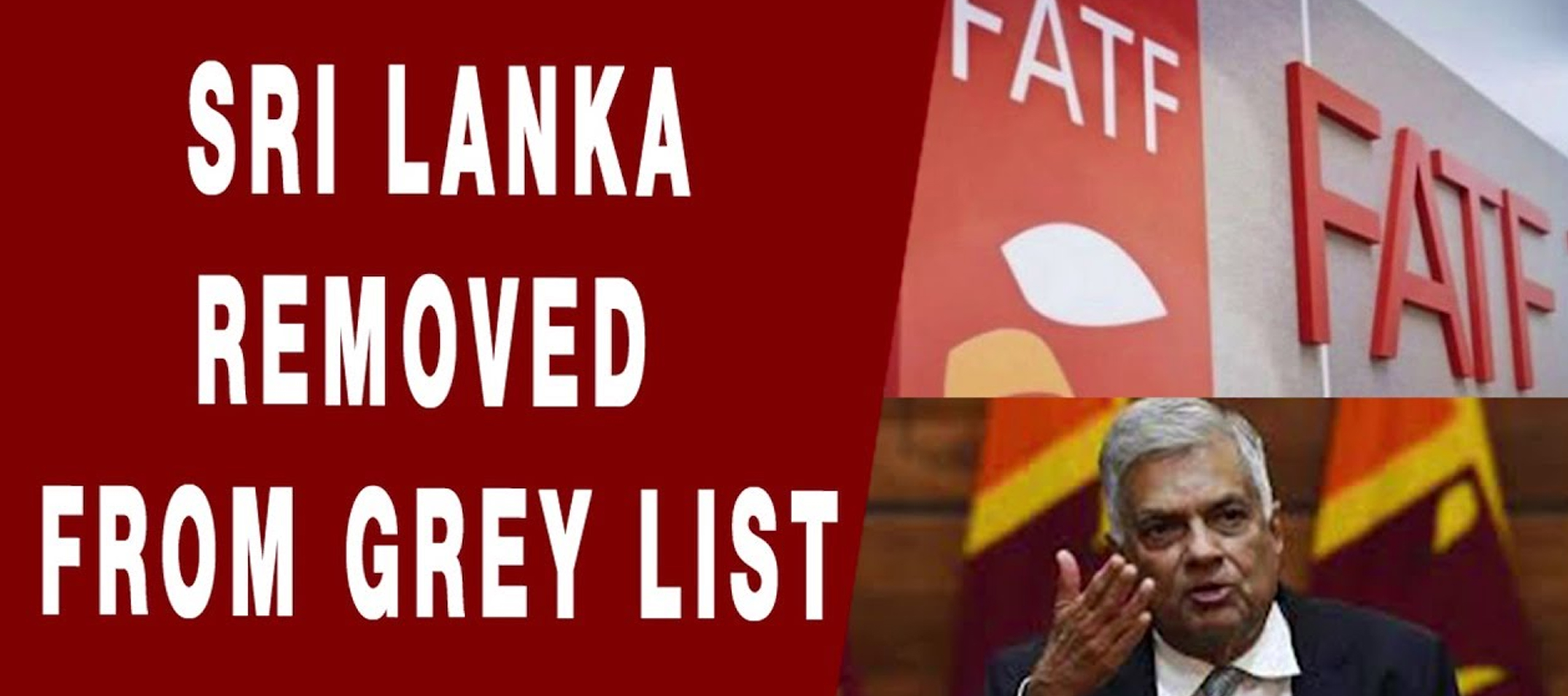
Sri Lanka has been removed from the "Grey List" of the international terror financing watchdog FATF. It will no longer be subject to the Financial Action Task Force's monitoring under its on-going global anti-money laundering and countering the financing of terrorism (AML/CFT) compliance process.
In October 2016, the FATF announced that Sri Lanka will be subjected to a review of the International Cooperation Review Group (ICRG) of the terror financing watchdog to assess the progress of AML/CFT effectiveness in the country.
The FATF is an inter-governmental body established in 1989 to combat money laundering, terrorist financing and other related threats to the integrity of the international financial system. The FATF retained Pakistan on its "Grey List" and warned it of getting blacklisted, if it does not control terror funding by February next year.
-
Microsoft wins Pentagon's $10 bn 'war cloud' deal from Amazon
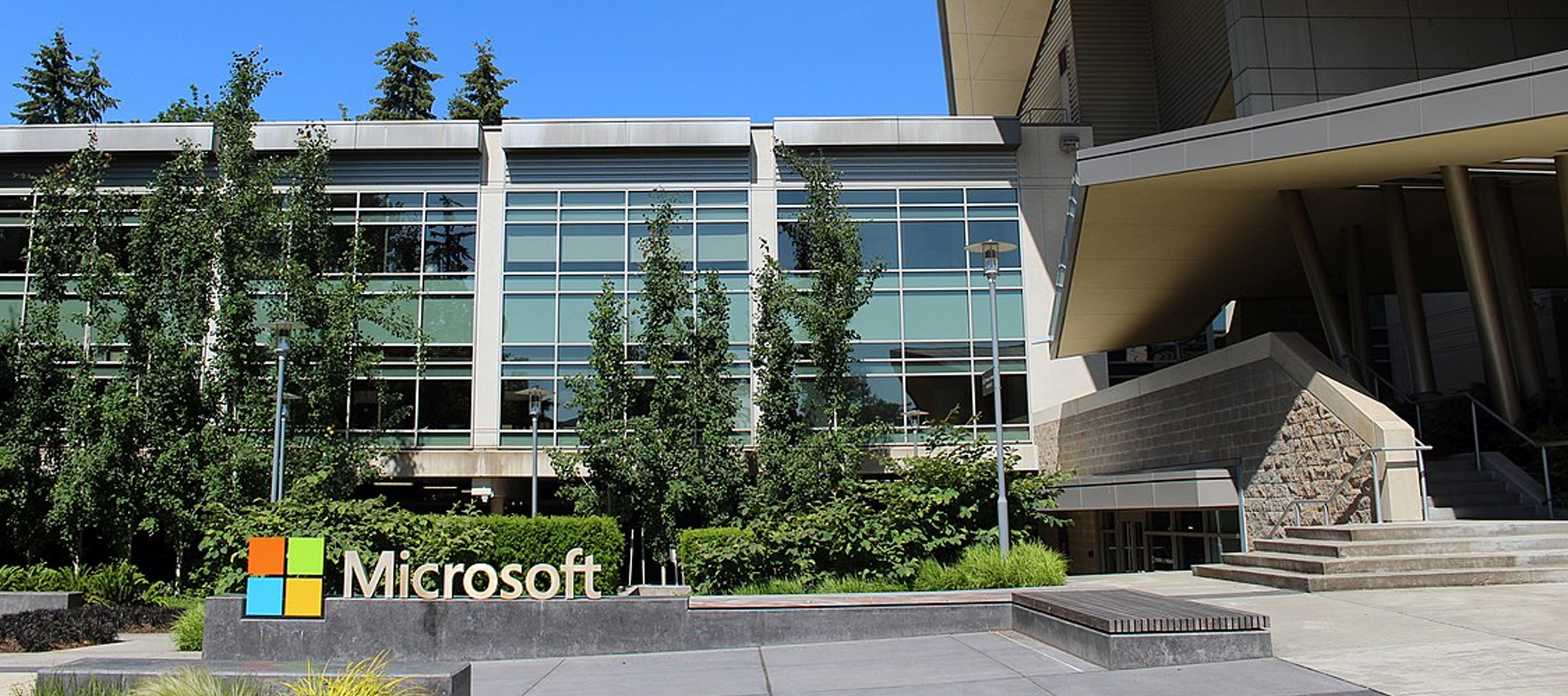
The Pentagon has awarded Microsoft a $10 billion cloud computing contract called JEDI. The contentious bidding process for the contract pitted Microsoft, Amazon and Oracle, among others, against one another.
The resulting system will store and process vast amounts of classified data, allowing the US military to use artificial intelligence to speed up its war planning and fighting capabilities. The Department of Defence emphasized in an announcement that the process was fair and followed procurement guidelines.
Economy & Business News
-
Visakhapatnam: India-Myanmar Naval Exercise commence onboard INS Ranvijay
The opening ceremony of the second edition of 'India Myanmar Naval Exercise' IMNEX-2019 was conducted onboard INS Ranvijay in Visakhapatnam, Andhra Pradesh. Myanmar naval ships UMS Sin Phyu Shin (F-14) and UMS Tabinshweti (773) arrived at Visakhapatnam and would engage in professional interaction with Indian Navy personnel for sharing of expertise on various maritime issues between both the navies.
The harbour phase of IMNEX-19 scheduled till October 20 includes visits to Indian Naval units, training and maintenance facility at Visakhapatnam. During Sea Phase scheduled from October 20 to 22, INS Ranvijay, a guided-missile destroyer and INS Kuthar, a missile corvette will be carrying out a joint exercise with Myanmar ships UMS Sin Phyu Shin, a frigate and UMS Tabinshweti, a corvette in the Bay of Bengal. The joint exercise will encompass a variety of operations including anti-air and surface firing exercises, flying exercises using integral helicopter and seamanship evolutions at sea.
The joint exercises this year have increased in scope and complexity and is a testimony of growing maritime cooperation between the two navies.
-
Govt launches BHIM 2.0 with new functionalities, additional language support
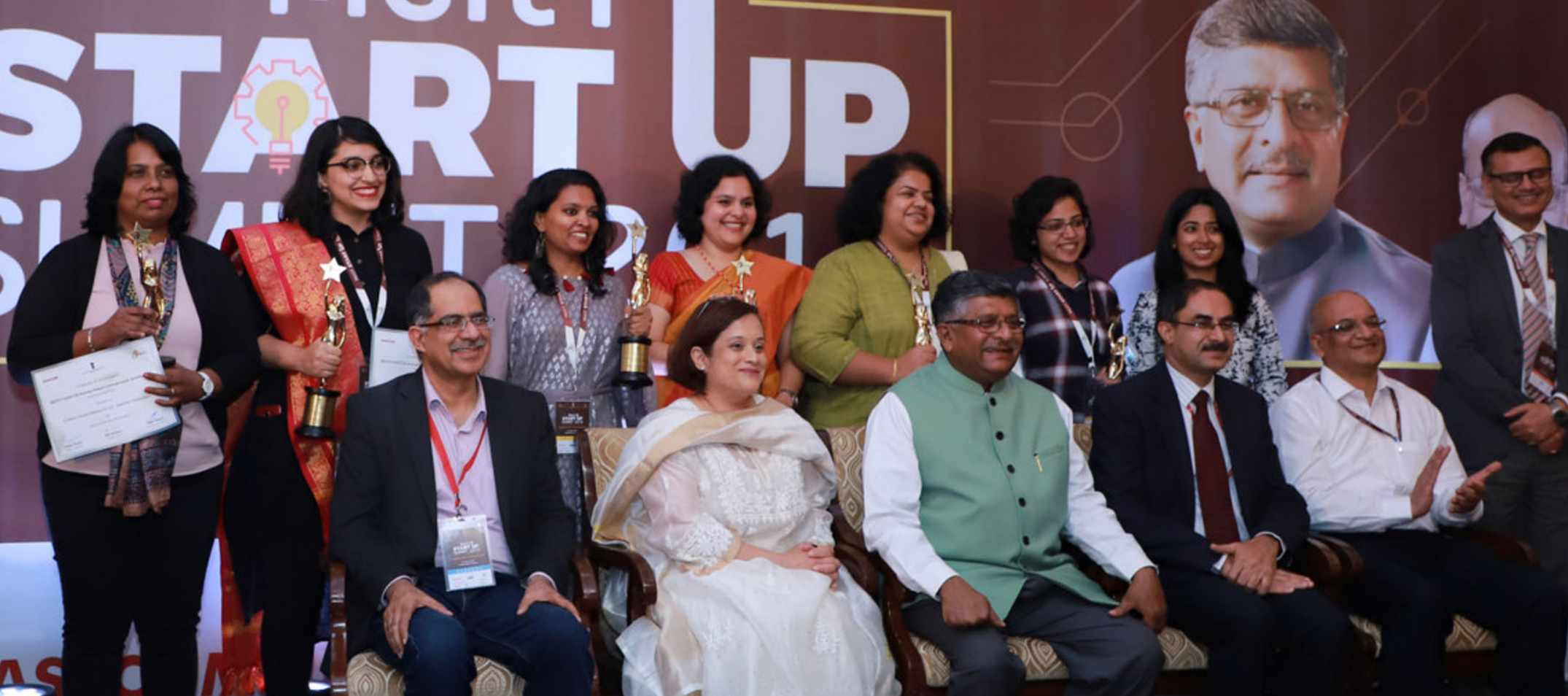
The IT Ministry unveiled a slew of new initiatives and programmes, including BHIM 2.0 that packs-in new functionalities, supports additional languages and has increased transaction limits. BHIM app, a UPI based payment interface developed by National Payments Corporation of India (NPCI) that allows real time fund transfer, was launched in December, 2016. The new version of BHIM also supports three additional languages -- Konkani, Bhojpuri and Haryanvi -- over and above the existing 13. Union Minister Ravi Shankar Prasad also launched a StartUp Hub portal and Indian Software Product Registry at IT Ministry's MeitY Start-up Summit. MeitY StartUp Hub (MSH) has been envisioned as an overarching collaborative platform to act as a national coordination, facilitation and interconnected centre for all activities in the tech startup ecosystem. MSH will support startups to reach out to mentors and facilitate startups to scale from ideation to marketplace. MSH portal brings onboard key constituents of the tech startup ecosystem with startups, technology incubation centres, Centres of Excellence (CoEs), mentors, VCs and angels together. It is also mandated to integrate existing programmes and innovation related activities of Ministry of ELectronics and IT (MeitY).
-
Jio, Vodafone Idea, Airtel pay govt over Rs 4500 crore in spectrum dues
Private telecom operators Reliance Jio, Vodafone Idea and Bharti Airtel have paid the Telecom Department over Rs 4,500 crore in spectrum dues in the last three to four days. While Mukesh Ambani-led Reliance Jio has paid Rs 1,133 crore to the Department of Telecom, Vodafone Idea has made Rs 2,421 crore payment towards spectrum dues. Sunil Mittal's Bharti Airtel has paid Rs 977 crore. Taken together, these three players have paid over Rs 4,531 crore towards spectrum dues late last week.
-
Uber partners DMRC, to introduce public transport service in Delhi
Taxi aggregation giant Uber has partnered with Delhi Metro Rail Corporation (DMRC) and introduced a seamless commuter service 'Uber Transit' at select metro stations Delhi.
Delhi will be the first city in Asia, and ninth globally, where the US-based company will launch Transit. The taxi aggregator firm had launched the service in Boston in the US, Nice in France, among others. Under the service, when riders enter a destination, they’ll see ‘Public Transport’ as an option alongside ‘UberGO’, ‘Premier’ and ‘UberPool’. Upon selecting the ‘Public Transport’ feature, riders will be able to see fastest and cheapest routes, real-time schedules for metro trains, buses and walking directions, to and from nearby metro stations and bus stops.
The service will be expanded to all the 210 metro stations eventually, but no timeline was provided.
-
Indian Army to conduct “Sindhu Sudarshan” exercise 2019 in Rajasthan deserts
The Indian Army (IA) is to conduct exercise codenamed “Sindhu Sudarshan” for the year 2019 in the deserts of Rajasthan from November 29 to December 4, 2019. The aim of this exercise is to evaluate the capability of the defence services in an integrated air-land battle. In the Sindhu Sudarshan exercise, operational efficiency of the Strike Corps fighting in the desert terrain will be assessed and the Indian Air Force(IAF) will provide support in terms of destruction of targets and airlifting troops.
-
Centre Announces Merger Of BSNL, MTNL To Revive State-Owned Telecom Entities
The Centre announced that the Union Cabinet had approved a revival plan for the Bharat Sanchar Nigam Limited (BSNL) and Mahanagar Telephone Nigam Limited (MTNL) and had decided "in principle" to merge the two entities.`
The move was to ensure the revival of state-owned telecom firms. The government will issue sovereign bonds to the tune of Rs 15,000 crore to revive the two legacy telecom companies. The government will also monetise assets worth Rs 38,000 crore to strengthen the firms. The Centre also plans to offer voluntary retirement scheme to its employees.
-
Govt accords 'Maharatna' status to Hindustan Petroleum, Power Grid Corp
The government accorded 'Maharatna' status to state-owned Hindustan Petroleum and Power Grid Corporation, thus giving them greater operational and financial autonomy. Two separate orders to this effect were issued by the Department of Public Enterprises, under the Ministry of Heavy Industry and Public Enterprises. The grant of Maharatna status to the PSUs will impart enhanced powers to their Boards to take financial decisions. The Boards of Maharatna central public sector enterprises (CPSEs) can make equity investments to undertake financial joint ventures and wholly owned subsidiaries and undertake mergers and acquisitions in India and abroad, subject to a ceiling of 15 per cent of the net worth of the concerned CPSE, limited to Rs 5,000 crore in one project. The Boards can also structure and implement schemes relating to personnel and human resource management and training. They can also enter into technology joint ventures or other strategic alliances, among others. The holding companies of a 'Maharatna' PSU are also empowered to transfer assets, float fresh equity and divest shareholding in subsidiaries, subject to the condition that the delegation will only be in respect of the subsidiaries set up by the holding company. HPCL was incorporated in 1974 after the takeover and merger of erstwhile Esso Standard and Lube India through the Esso (Acquisition of Undertaking in India) Act passed by Parliament. Power Grid Corporation of India Limited is India's largest electric power transmission utility firm. It is a listed company since 2007.
-
Indo-French joint exercise 'Shakti-2019' to be held in Rajasthan from Oct 31
'Shakti-2019', a bilateral exercise will be conducted between Indian and French Army troops at the Foreign Training Node at Mahajan Field Firing Ranges in Rajasthan from October 31 to November 13. The French Army troops have arrived in India on October 26 for training with Indian troops. While a contingent of the Sikh Regiment of Sapta Shakti Command will represent Indian Army in this exercise, the French Army delegation will be represented by troops of 21st Marine Infantry Regiment of 6th Armoured Brigade. The joint exercise will focus on counter-terrorism operations in the backdrop of semi-desert terrain under United Nations mandate. The training will focus primarily on a high degree of physical fitness, sharing of the drill at the tactical level and learning of best practices from each other. The exercise aims at enhancing understanding, cooperation and interoperability between the two Armies. The bilateral exercise will culminate in a 36 hours long validation exercise which will involve neutralization of terrorists in a village hideout. Series of 'Exercise Shakti' between India and France commenced in 2011.
-
TechSagar, national repository of India’s cyber tech capabilities launched
The National Cyber Security Coordinator's office in partnership with Data Security Council (DSCI) of India launched TechSagar – a platform to discover India’s technological capability through a portal. The portal will list business and research entities from the IT industry, startups, academia, and individual researchers. As India aspires to become a trillion dollar digital economy, the repository will facilitate new opportunities for businesses and academia to collaborate, connect and innovate in future.
TechSagar is a consolidated and comprehensive repository of India’s cyber tech capabilities which provides actionable insights about capabilities of the Indian Industry, academia and research across 25 technology areas like internet of things (IoT), Artificial Intelligence (AI), Machine Learning (ML), blockchain, cloud & virtualisation, robotics & automation, ar/vr, wireless & networking, and more.
TechSagar will allow targeted search, granular navigation and drill down methods using more than 3000 niche capabilities. As of now, the repository features 4000+ entities from industry, academia and research including large enterprises and start-ups providing a country level view of India’s cyber competencies. TechSagar will be frequently updated with new entities and information to maintain its relevancy and usefulness. DSCI is a not-for-profit, industry body on data protection in India, setup by NASSCOM. The portal can be accessed at www.techsagar.in.
People in News
-
Indonesia's President Joko Widodo sworn in for final term
Indonesia's President Joko Widodo has been sworn into office for his second and final five-year. Widodo, a former furniture salesman popularly known as Jokowi, took oath at a ceremony in the capital, Jakarta, attended by politicians and foreign dignitaries. Re-elected in polls that took place in April, the 58-year-old was sworn into office along with 76-year-old vice president Maruf Amin, who replaces Widodo's vice president in his first term, Jusuf Kalla.
-
Deepika Padukone and PV Sindhu turn Bharat Ki Laxmi for PM Modi to celebrate Indian women
Deepika Padukone and PV Sindhu have collaborated for a promotional video for PM Narendra Modi's Bharat Ki Laxmi movement. Deepika and PV Sindhu are seen telling their stories and encouraging people to nominate women who have contributed to the society and made name for themselves. Bharat Ki Laxmi movement is a campaign to honour Indian women who have made a mark with their achievements in various fields for public good.
-
Important appointments
Senior IAS officer Arvind Singh has been appointed as the chairman of Airports Authority of India and Sukhbir Singh Sandhu will head the National Highways Authority of India as part of a major bureaucratic reshuffle effected by the Centre.
Ganji Kamala V Rao, at present in his cadre-state Kerala, has been named the chairman and managing director, India Tourism Development Corporation (ITDC) Ltd.
Pramod Kumar Tiwari, joint secretary, department of food and public distribution, Ministry of Consumer Affairs, Food and Public Distribution will be the director general of the Bureau of Indian Standards in the Ministry of Consumer Affairs, Food and Public Distribution.
Senior bureaucrat K Sanjay Murthy, additional secretary in the Ministry of Housing and Urban Affairs will be chief executive officer and managing director, Delhi Mumbai Industrial Corridor Development Corporation under the Ministry of Commerce and Industry.
Keshav Kumar Pathak has been appointed as managing director, National Highways & Infrastructure Development Corporation Ltd. under the Ministry of Road Transport and Highways. IAS officer Vijayendra will be chairman & managing director, National Small Industries Corporation Ltd.
- Latest Governor and Lt. Governors appointments
Girish Chander Murmu was appointed the first Lt Governor of Jammu and Kashmir. He will be administered oath of office on October 31 in Srinagar after which he will be the administrative head of Kashmir and Jammu provinces.
The state’s third province -- Ladakh-- has been carved out as a separate Union Territory. Former defence secretary Radha Krishna Mathur was appointed the first Lt Governor of strategically located Ladakh. The 65-year-old bureaucrat, belonging to 1977 IAS batch, retired as chief information commissioner last year. He will be administered oath of office on October 31 in Leh. The present governor of the state Satya Pal Malik moves to Goa for the remainder of his tenure as the governor. He was first appointed governor of Bihar in September 2017 and later shifted to Jammu and Kashmir last year in August.
The two Union territories -- Ladakh and Jammu and Kashmir -- will come into existence on October 31 after the Centre abrogated the special status of the state and bifurcated it into union territories on August 5. Dineshwar Sharma, has been appointed as administrator to Lakshadweep.
BJP’s Kerala president P S Sreedharan Pillai has been appointed as the new governor of Mizoram. Assam governor Jagdish Mukhi has been holding the additional charge of Mizoram.
-
Pankaj Kumar appointed CEO of UIDAI
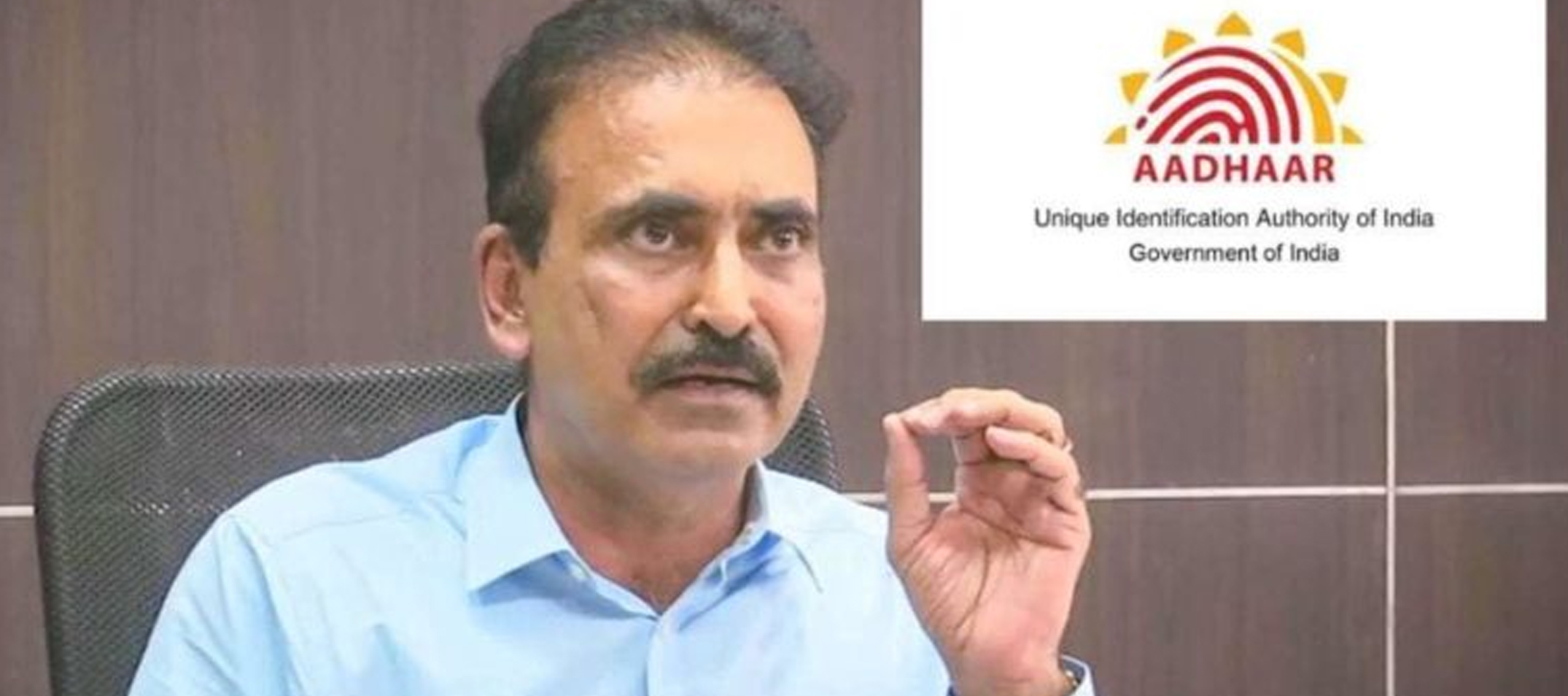
The government appointed Pankaj Kumar, a 1987-batch IAS officer, as the new Chief Executive Officer of Unique Identification Authority of India (UIDAI), as part of a major reshuffle in the top bureaucracy that saw the appointments of new secretaries in crucial ministries.
Jammu and Kashmir cadre IAS officer Braj Raj Sharma, who has been serving as Secretary in the under the Home Ministry, was appointed Chairman, Staff Selection Commission. Nagendra Nath Sinha, a 1987-batch IAS officer who is Chairman of National Highways Authority of India, will take Sharma’s place in the Border Roads Organisation (BRO).
Awards
-
Vice President presents ‘Most Eminent Senior Citizen Award’ to former Attorney General, Shri K. Parasaran
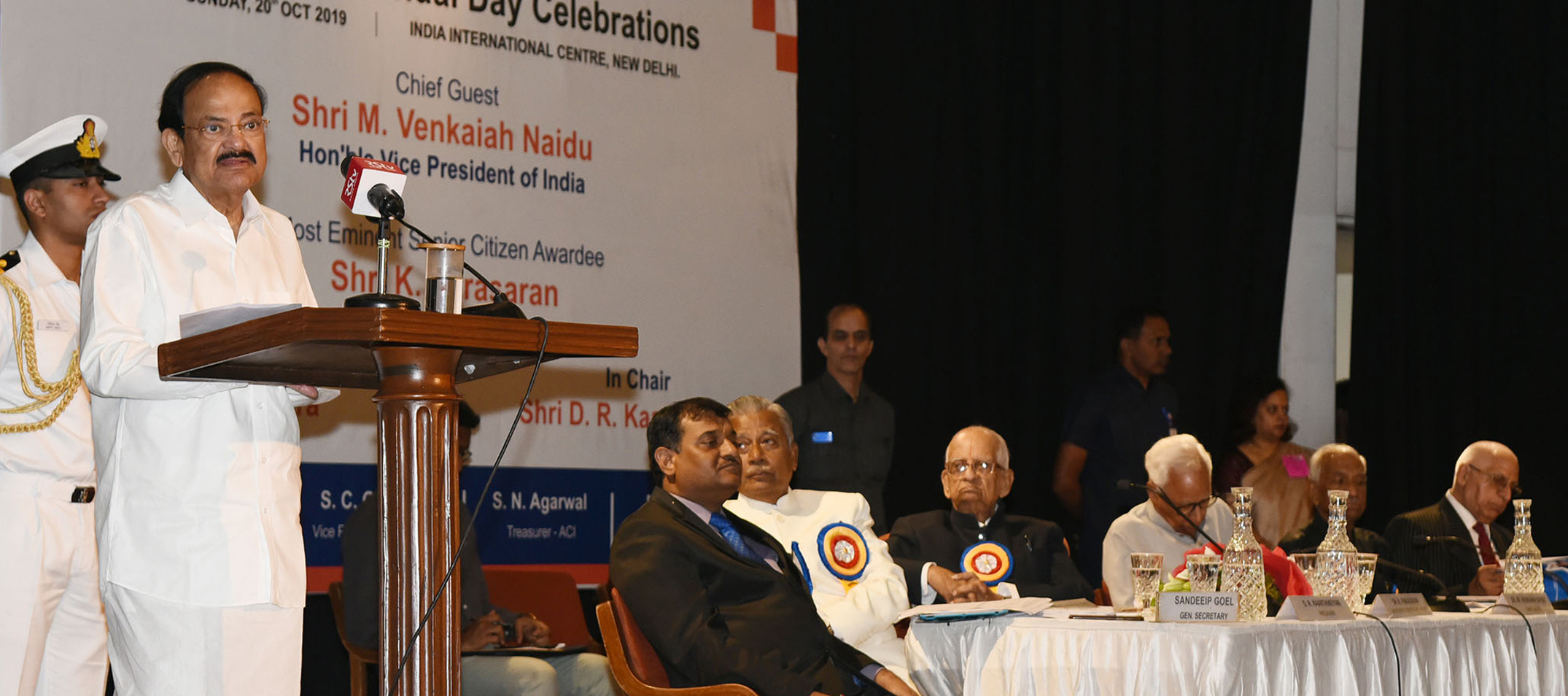
The Vice President of India, Shri M Venkaiah Naidu presented ‘Most Eminent Senior Citizen Award’ to legal luminary, scholar and former Attorney General of India, Shri K. Parasaran at a function at the India International Centre in New Delhi. Shri Parasaran was honored with the Award on the occasion of the Elder’s Day celebration of Age Care India, an organization working for the welfare of the elderly.
-
YES Bank wins Digital payment awards at MEITY Startup summit.
YES BANK, India’s fourth largest private sector bank, won the DigiDhan Mission Digital Payments Award 2018-19 for ‘Overall Performance in Digital Payments’ at the MeitY Startup Summit 2019 held in Delhi. The award was presented by Chief Guest, Shri Ravi Shankar Prasad, Minister of Communication, Electronics & IT and Law & Justice.
-
BharatPe wins Innovation in Digital Payments Award at MeitY
BharatPe, India's largest merchant fin-tech company has won the DigiDhan Mission Fin-tech Award 2018-2019 for 'Innovation in Digital Payments through Emerging Technology' at the MeitY Start-up Summit 2019 held in Delhi.
BharatPe is India's largest merchant fin-tech company. Within its first year since launch, the company has established a network of over 20 lakh merchants and supports the merchant community with free UPI payments through one QR code, lending, and deposits. Traditionally, the segment has been underserved by other financial institutions. BharatPe is the only Fin-tech in India with all the ingredients of a digital bank - payments, lending, and deposits. Ministry of Electronics & Information Technology (MeitY) is mandated to promote digital payments in the country and through the recently held DigiDhan Awards 2019, awarded innovations done by Fin-tech companies for promotion of Digital payments.
-
Ilham Tohti, jailed Uighur activist, wins EU′s Sakharov Prize
Ilham Tohti is a renowned Uighur activist who recently announced as a winner of Sakharov Prize of European Union. He is a human rights defender and advocate of China's Uighur minority. He has been working for over two decades to foster dialogues between Chinese People and Uighur Muslims. He was sentenced to life in prison in September 2014 for his activism. Experts believe that he is a voice of moderation and settlement in spite of what he has suffered. Chinese government convicted him of creating hatred and terror through his teaching on Uighur issues. In recent years, Uighur people have become a subject of unparallel repression by the Chinese government. As per the data provided by European Union Parliament, more than 1 million Uighur Muslims have been detained in internment camps where they are forced to give up their religious and ethnic identity and swear loyalty of Chinese government.
Days &Events
-
Bali Jatra: Odisha’s biggest trade fair

Bali Jatra, one of the biggest trade fairs of Odisha, is scheduled to begin on 12 November 2019. The trade fair will continue for 8 days and this year’s Baliyatra will be jointly organized by Cuttack District Administration, Cuttack Municipal Corporation (CMC) and District Cultural Council. Bali Jatra is also known Boita Banda?a, which literally means ‘A Voyage to Bali’. The annual festival is celebrated from day of Kartika Purnima (according to Odia Calendar), which comes around end of October and November. It is held in Cuttack city of Odisha, at Gadagadia Ghata of Mahanadi river. In Cuttack, Bali Jatra is celebrated every year as a large open fair near Barabati Fort area with several cultural programs, different games and food stalls selling Odia delicacies. It is celebrated to mark the day when ancient Sadhabas (Odia mariners) would set sail to distant lands of Bali, Java, Sumatra as well as Sri Lanka for trade and cultural expansion.
-
Vice President addresses 18th summit of NAM in Baku
Vice President M.Venkaiah Naidu addressed 18th Summit of Heads of State and Government of the Non-Aligned Movement in Baku of Azerbaijan. In his address, Vice president said that NAM has played an important role in promoting global peace & security & in voicing the hopes and aspirations of nearly two-thirds of humanity. Vice president called upon the NAM partners to join hands to fight terrorism as it continues to expand its tentacles with increasing impunity.
Over the years, India's bilateral trade with oil-rich Azerbaijan has increased substantially from around USD 50 million in 2005 to around USD 463 million in 2017, according to India's Embassy in Baku.
-
World Statistics Day-20 October
The World Statistics Day was celebrated for the first time in 2010. It was declared by the United Nations Statistical Commission. It is celebrated once in 5 years. India celebrates Statistics Day on 29th June, on the birthday of the legend statistician Prasanta Chandra Mahalanobis.
-
Police Commemoration Day- 21 October
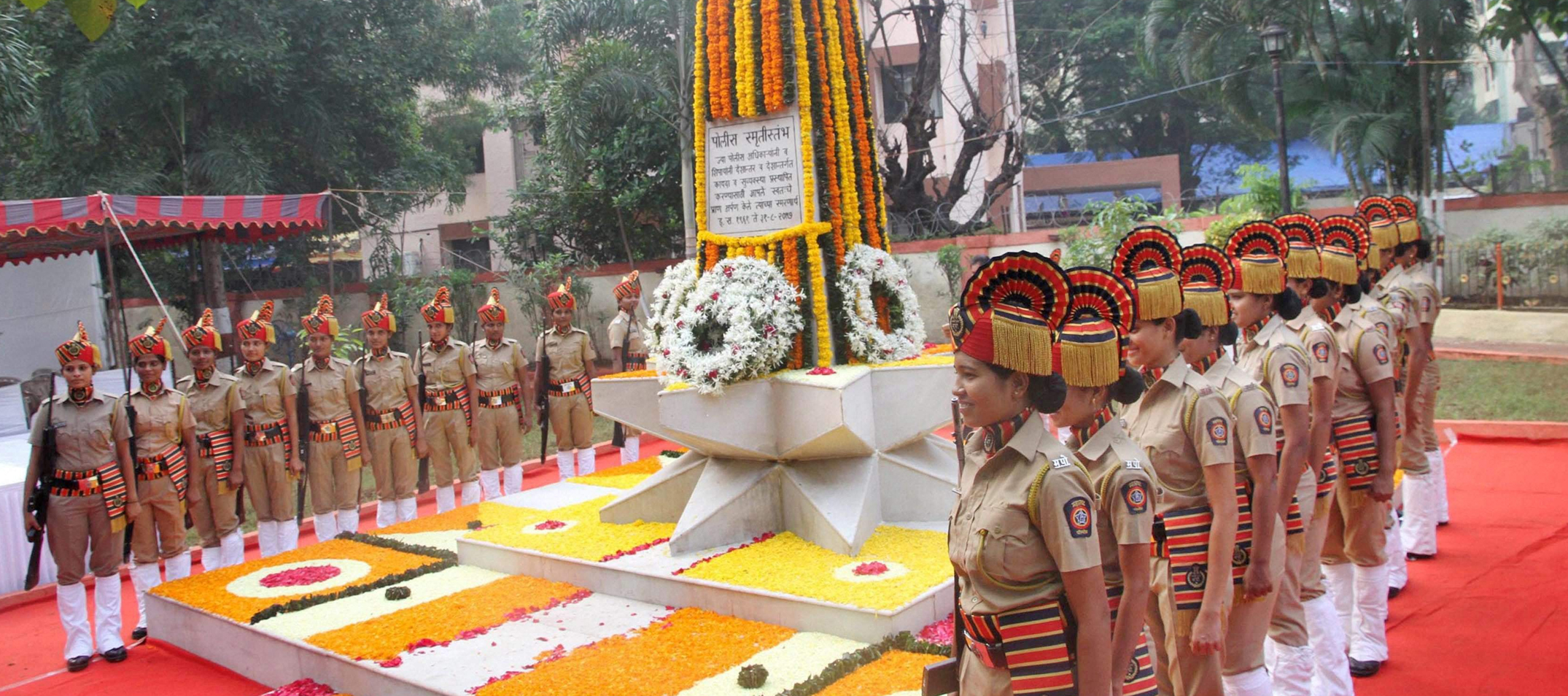
National Police Commemoration Day is observed every year on October 21 to remember remembering the brave policemen who sacrificed their lives while discharging their duties. Rich tributes are paid to the martyrs on this day. On Police Commemoration Day 2019, Prime Minister Narendra Modi urged the people to visit the National Police Museum and saluted police forces and their families.
On October 21, 1959, twenty Indian soldiers were attacked by the Chinese troops in Ladakh
This altercation between the troops led to the death of ten policemen
Seven of the others who were also imprisoned and managed to escape from the Chinese troops
On November 28, 1959, the Chinese troops handed over the dead bodies of the martyred policemen to India
Their cremation was held with full Police honours at the Hot springs in Ladakh
Ever since the incident, October 21 is celebrated as Police Commemoration Day in remembrance of the martyrs.
-
Indian Army celebrates 73rd Infantry Day on 22 October
The Indian Army celebrated the 73rd Infantry Day to commemorate the supreme sacrifices of the infantry in countering the Pakistani raiders in Jammu and Kashmir in 1947. On October 22, Pakistan Army and Lashkar had invaded into Jammu and Kashmir and wreaked havoc on the people. After the Treaty of Accession was signed, Indian forces entered the region and we fought battles like Battle of Badgam and successfully captured Uri and Poonch. Infantry Day is observed as a remembrance of the first military event of independent India, when the Indian Army repelled the first attack on the Indian soil on October 27, 1947, in the Kashmir valley. The victory was accomplished by the personnel of the First Battalion of the Sikh Regiment.
-
International United Nations Day-24 October
The International United Nations day is observed on 24 October 2019. The UN Day marks the anniversary of the entry into force in 1945 of the UN Charter. The United Nations was established in 1945 and the organization aims to support collective action to realize peace, development, and human rights for all. The day will aim to build a better world despite the many challenges the world faces. In 1971, the United Nations General Assembly (UNGA) adopted the United Nations Resolution 2782 and declared the International observance of United Nations Day on 24th October. There are 193 member states and two observer states in the United Nations organization.
-
World Polio Day-24 October
World Polio Day is celebrated on 24 October. The day aims to raise awareness and resources to support the polio eradication effort. On this day, Rotarians and other partners reach out to leaders and communities to engage them in the effort through various events, fundraisers, and social media campaigns to support a Global Polio Eradication Initiative (GPEI). The World Polio Day was established by the International Rotary club. The day aims to commemorate the birth of Jonas Salk. He led the first team to develop a vaccine against poliomyelitis. Albert Sabin discovered the use of this inactivated poliovirus vaccine and subsequent widespread use of the oral poliovirus vaccine. His discovery led to the establishment of the Global Polio Eradication Initiative. Polio is a disease caused by Poliovirus. The virus affects the nervous system. Polio is also is known as poliomyelitis. It is mainly spread by person-to-person contact. Children younger than five years old contract the virus than any other age group of people. Poliovirus spreads by means of food or water containing human feces and less commonly from infected saliva.
-
76th anniversary of Azad Hind Movement was commemorated
The 76th anniversary of Azad Hind Movement was commemorated at Red Fort, Delhi. The Union Minister of Culture and Tourism Shri Prahlad Singh attended the celebration. Last year PM Modi attended the celebrations unveiling the plaque to commemorate the 75th Anniversary of the formation of Azad Hind Government.
The Provisional Government of Free India or Azad Hind was established in Singapore in 1943. It was supported by the Japanese Empire, Italian social Republic, Nazi Germany and other allies. The purpose of the movement was to ally with the Axis Powers to free India from British rule. The movement was established by the Indian Nationalists in exile during the later part of Second World War. The movement was founded on October 21, 1943 being inspired by the concepts of Subhash Chandra Bose.
-
India wins vote to host Interpol General Assembly in 2022
India successfully won the vote to host the Interpol General Assembly in the national capital in 2022, as part of the platinum jubilee celebrations of its independence. CBI Director Rishi Kumar Shukla had proposed India's candidature in his brief address at the ongoing 88th Interpol General Assembly at Santiago in Chile. An overwhelming majority voted in favour of India's proposal to host the event. Interpol is an international organisation with 194 member states and 100 years of experience of international cooperation in Policing. Interpol's 17 databases house 90 million records. With its secure global data communication channel (I-24/7), Incident Response Teams, Command and Control Centre, a worldwide network of NCBs, Interpolis uniquely placed to assist LEAs of member countries.
Rankings
-
QS India University Rankings 2020: IIT Bombay tops again
Indian Institute of Technology Bombay (IITB) has topped the Quacquarelli Symonds (QS) India University Rankings 2020. This is the second time QS has published separate ranking for top institutions in India. The first edition was released in 2019, and IITB had clinched the top place on the list even then.
Six other IITs have found a place among the top ten institutions in the QS list of top Indian institutions. They are Indian Institute of Technology Delhi (IITD) at number 3, Indian Institute of Technology Madras (IITM) at number 4,Indian Institute of Technology Kharagpur (IIT-KGP) at number 5, Indian Institute of Technology Kanpur(IITK) at number 6, Indian Institute of Technology Roorkee(IITR) at number 9 and Indian Institute of Technology Guwahati(IITG) at number 10.
Indian Institute of Science Bangalore (at number 2), University of Hyderabad (at number 8) and University of Delhi (at number 7) are the other three Indian institutes in the top 10 list.
Compared to last year, IITD has gained one position to acquire the third rank, while the IIT Madras has fallen one place to stand at fourth place on the QS India Rankings list this year. Similarly, University of Delhi has gained one place to stand at number 7, while University of Hyderabad has lost one place to stand at number 8.
The British higher education analysts QS has ranked the higher education institutions in India on the basis eight parameters which have different weightage. The eight parameters with their weightage are academic reputation (30%), employer reputation (20%), faculty student ratio (20%), staff with PhD (10%), Papers per faculty (10%), citation per paper (5%), international faculty (2.5%) and international students (2.5%).
-
India jumps to 63rd position in World Bank’s Ease of Doing Business rankings
India jumped into the 63rd rank in the World Bank’s latest Ease of Doing Business rankings, soaring 14 notches from last year, as the multilateral body endorsed a string of reforms—from the signature 'Make in India' initiative to insolvency resolutions — that the government has launched over the last few years. The improvement in rankings will likely bring cheer to the government that is battling to engineer a quick turnaround in the economy buffeted by weak consumer demand and muted investment activity.
The World Bank report also recognises India as one of the top 10 improvers in this year’s assessment, for the third successive time. India is the only large country this year to have achieved such a significant shift. The new corporate income tax rates in India will be lower than USA (27 percent), Japan (30.62 percent), Brazil (34 percent), Germany (30 percent) and is similar to China (25 percent) and Korea (25 percent). New companies in India with an effective tax rate of 17 percent is equivalent what corporates pay in Singapore (17 percent).
The World Bank report said that “Make in India” campaign focused on attracting foreign investment, boosting the private sector—manufacturing in particular—and enhancing the country’s overall competitiveness.
-
India improves ranking in Melbourne Mercer Global Pension Index
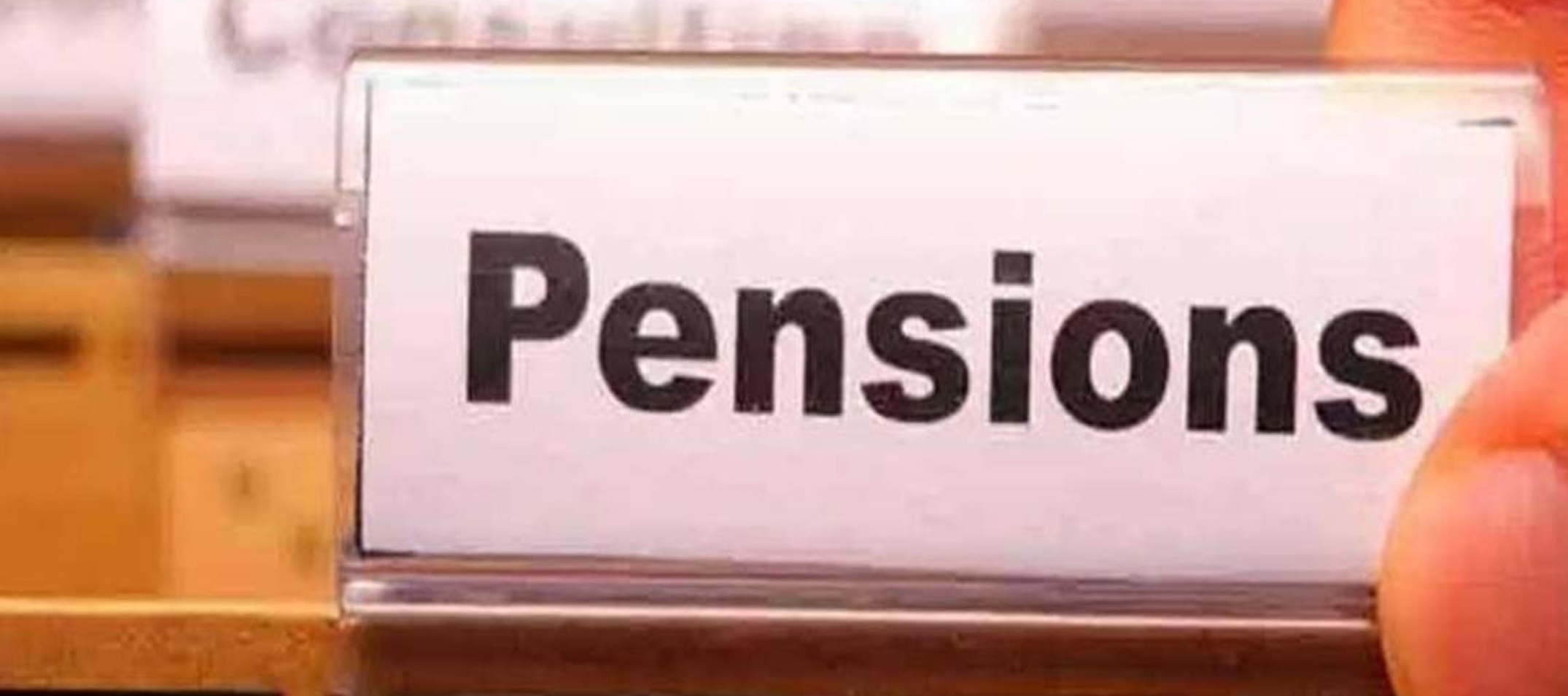
India has marginally improved its ranking to 32nd position in terms of providing pension and retirement benefits to citizens compared to last year, according to the Melbourne Mercer Global Pension Index (MMGPI) 2019. The country’s score in the Melbourne Mercer Global Pension Index (MMGPI) 2019 rose to 45.8 from 44.6 last year. The MMGPI, which covers 37 countries, is based on how they fare on providing pension and retirement benefits to citizens across different income groups.
India stood at 32nd position in 2019 out of 37 countries, while it was ranked at 33rd place in 2018 out of 34 countries in the list.
India’s index value increased largely due to the improvement in all three sub-indices of adequacy, sustainability and integrity.
As per the index, the improvement was due to slight increase in scores across various dimensions, including net household savings, greater flexibility in managing retirement and part time work, steady progress in governance and reporting around private pension plans.
The report said that the draft wages and social security reforms, that have been initiated in India, indicate the intent of policy makers in creating an inclusive and sustainable pension system.
Given the demographic diversity and the large percentage of workforce in the unorganised sector, reforms in the pension system will take time to manifest themselves, it said.
The report added that index value can further be enhanced by complementing above reforms with greater participation of organised sector in supplemental pension plans.
Efforts by the government to introduce new pension system has shown good results.
It cited the Atal Pension Yojana (APY) which is available to all citizens below the age of 40, but is aimed at the unorganised sector and encourages them to save voluntarily before retirement.
The report also mentioned new schemes introduced by the government for different segments of workers in the unorganised sector like the PM Karam Yogi Maan-Dhan Scheme for retailers and shop keepers, PM Kisan Pension Yojan (PM-KMY) for small and marginal famers and the recently announced contributory scheme Pradhan Mantri Shram-Yogi Maan-Dhan (PM-SYM) that covers workers in the unorganized sector with equal contribution by the government.
In the overall list, the Netherlands had the highest index value (81.0), while Thailand had the lowest value (39.4).
Sub-index wise, Ireland had the highest score for adequacy (81.5), Denmark for sustainability (82.0) and Finland for integrity (92.3).
Thailand scored the lowest for adequacy (35.8), Italy for sustainability (19.0) and Philippines for integrity (34.7).
-
National Crime Records Bureau releases data for 2017
The National Crime Records Bureau (NCRB) released its 2017 data for crime in India on October 21. The data that was supposed to be published under the new sub-heads of mob lynching, murder by influential people, killing ordered by khap panchayats and murder committed for religious reasons. The report states that this exclusion has made the report only partial.
According to the report, the data under the new sub-heads was a part of a data revamp exercise undertaken by former NCRB director Ish Kumar. The idea behind collecting data on lynchings, was to help the government formulate policies that would tackle this problem. A new category of offences under the aegis of "Anti-National Elements"showed that the maximum number of offences were committed by Left Wing Extremist (LEW) operatives, insurgents in the Northeast and terrorists. The data suggests that in 2017 itself, India registered over 50 lakh cases of cognisable offences, which, according to reports, is a 3.6 percent increase in the registration of cases as compared to 2016. Uttar Pradesh has been listed as the most unsafe for women, with the state registering the maximum number of cases – over 56,000 – of crimes against women in 2017. This comes at a time when a debate rages regarding the law and order situation in the state. Madhya Pradesh, meanwhile, has been ranked as the 'rape capital' of India. The report states that the state recorded the highest number of rape cases at 5,562 cases.
Delhi saw a decline in crimes against women for the third straight year, with over 13,000 First Information Reports (FIRs) being registered as opposed to over 15,000 in 2016 and over 17,000 in 2015. NCRB has classified 'crimes against women' as 'murder, rape, dowry death, suicide abatement, acid attack, cruelty against women and kidnapping'.
The report states that at 27.9 percent, the majority of cases in crime against women were recorded under "cruelty by husband or his relatives" category. While cyber frauds accounted for a total of 12,213 individual reports across all states and union territories in India, the second most individually reported cases of cyber-crime came in the form of sexual exploitation. Here, too, Uttar Pradesh tops the list, with 4,971 of the total 21,796 reported cases coming from UP.
According to the report, in Assam, which has recorded higher number of cyber-crimes than other states in the region, sexual exploitation and personal revenge were the prime reasons.
The NCRB report states that as compared to 2016, there has been a 30 percent rise in incidents of offences against the state. Sedition, waging war against country and damage to public property are among the offences included under this category.
Interestingly, the maximum number of such offences were recorded from Haryana while the minimum number of such cases were recorded from Jammu and Kashmir (J&K).
Haryana, according to the report, registered 13 cases of sedition— second after Assam, which registered 19-while only one case of sedition was recorded in J&K.
-
Credit Suisse’s Global Wealth Report 2019
The Credit Suisse Group which is a Switzerland-based multinational investment bank, has released the 10th edition of its annual Global Wealth Report. The report tracks both growth and distribution of wealth, in terms of numbers of millionaires and billionaires, proportion of wealth that they hold as well as the status of inequality globally.
Only 47 million people who account for just 0.9% of world’s adult population owned $158.3 trillion, which is almost 44% of world’s total wealth. While at the other end of spectrum, 2.88 billion people who account for almost 57% of world’s adult population owned merely $6.3 trillion, which is almost 1.8% of world’s wealth.
China has overtaken United States (US) in 2019 to become ‘the country with most people in top 10% of global wealth distribution’. The report states that India, along with China and Vietnam as best examples of how wealth can be raised by pushing for higher economic growth as a multiple of Gross Domestic Product (GDP) by addressing institutional as well as financial-sector deficiencies.
Sports News
-
Sultan of Johor Cup 2019: Great Britain beats India
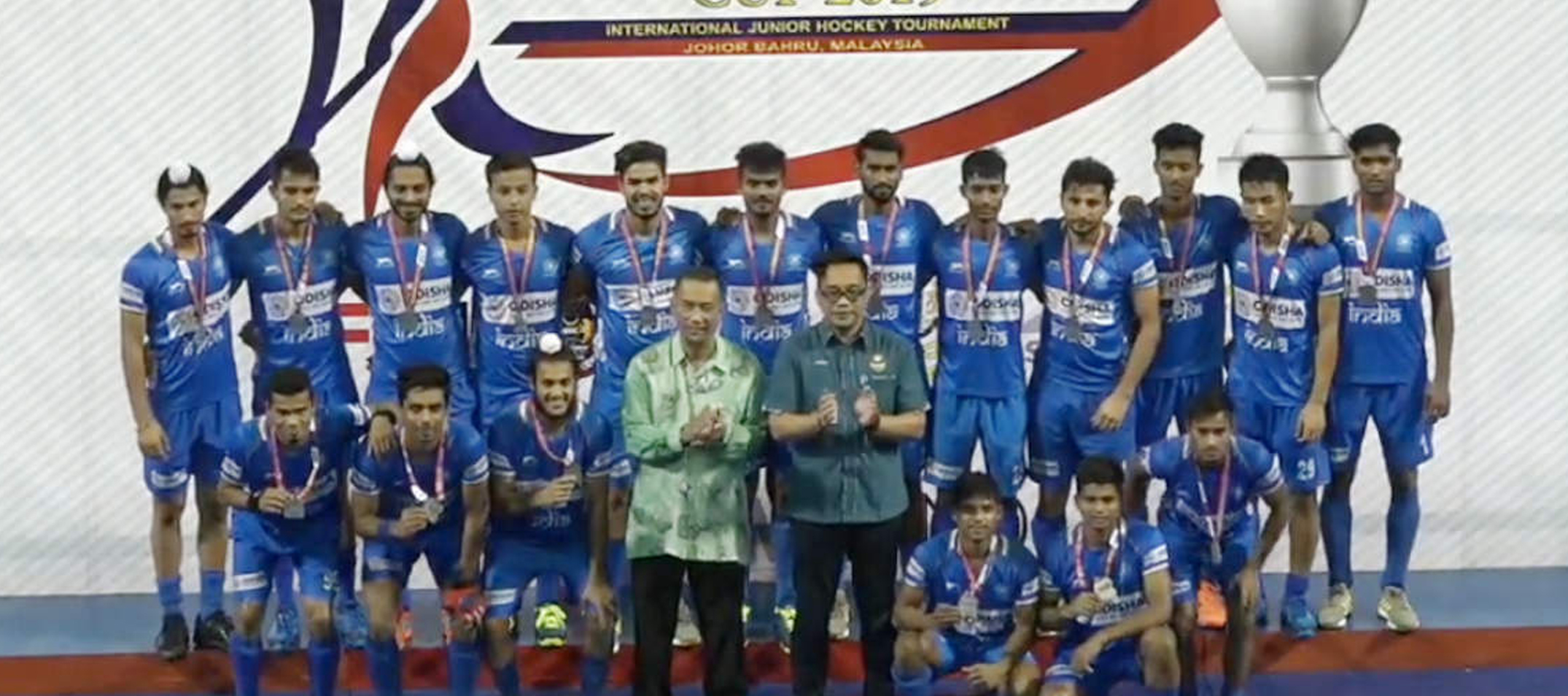
Great Britain beats India with 2-1 in final to win men’s Sultan of Johor Cup hockey tournament held at Johor Bahru in Malaysia. The Indian junior men’s hockey team suffered defeat as Great Britain score 20 seconds before full-time. Great Britain was this years’ defending country after they were crowned champions in 2018.
Sultan of Johor Cup is an international men’s under–21 field hockey tournament. It started in 2011 and this year is the ninth edition of Sultan of Johor Cup. So far, five teams have emerged victorious. Great Britain is the most successful team now having won the tournament thrice (2015, 2018 2019), followed India (2013 and 2014) and Australia who have all won the tournament twice.
In 2019 edition, 6 teams competed in the tournament (including the host nation), namely- India, Australia, Great Britain, Japan, Malaysia, New Zealand.
-
Raunak Sadhwani becomes India’s 65th Grandmaster
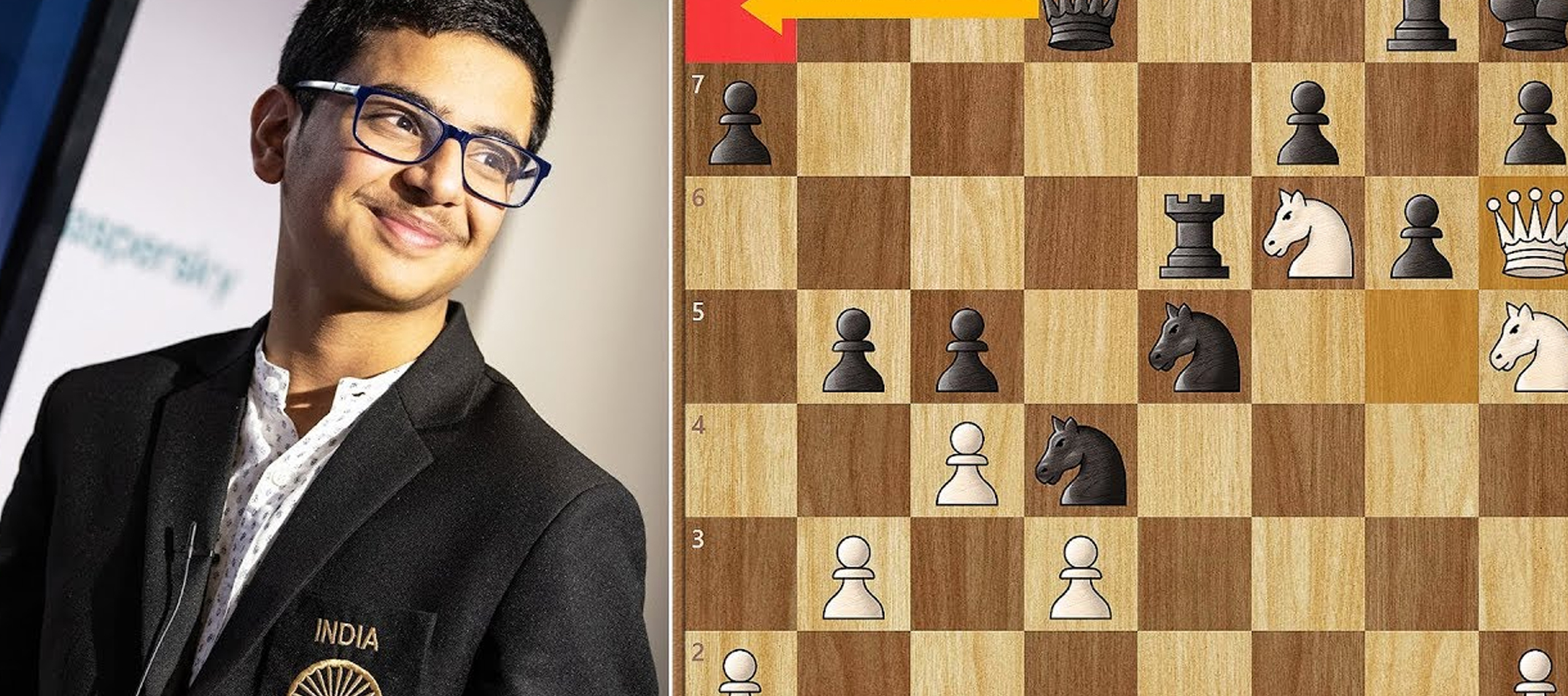
Raunak Sadhwani has becomes India’s 65th Grandmaster. He defeated Russian GM Alexander Motylev to become the Grandmaster at the age of 13 years, 9 months and 28 days. Sadhwani’s first GM norm came in the 2019 Aeroflot Open and the 2nd in the 2019 Porticcio Open and the final norm at FIDE-Chess Grand Swiss.
With the victory, Sadhwani has joined the growing list of country’s teenaged GMs that includes enormously-talented Nihal Sarin, R. Praggnanandhaa and D. Gukesh, among others.
-
India vs South Africa: Rohit Sharma Surpasses Don Bradman To Achieve Massive Record In Tests At Home
Rohit Sharma scored hHis best-ever Test score of 212 runs helped him break Don Bradman's record for the highest Test average at home after 10-plus innings. Rohit Sharma now averages an exceptional 99.84 at home edging past Don Bradman's average of 98.22.
The Mumbai batsman has scored 1,298 runs in 18 innings in Tests at home which includes six centuries and five half-centuries. In the ongoing India vs South Africa series, Rohit Sharma also broke the record for most sixes in a Test series with 19 hits over the fence. The previous record was held by Shimron Hetmyer who had hit 15 sixes in a series against Bangladesh in 2018-19.
-
Sourav Ganguly formally elected as the 39th president of BCCI
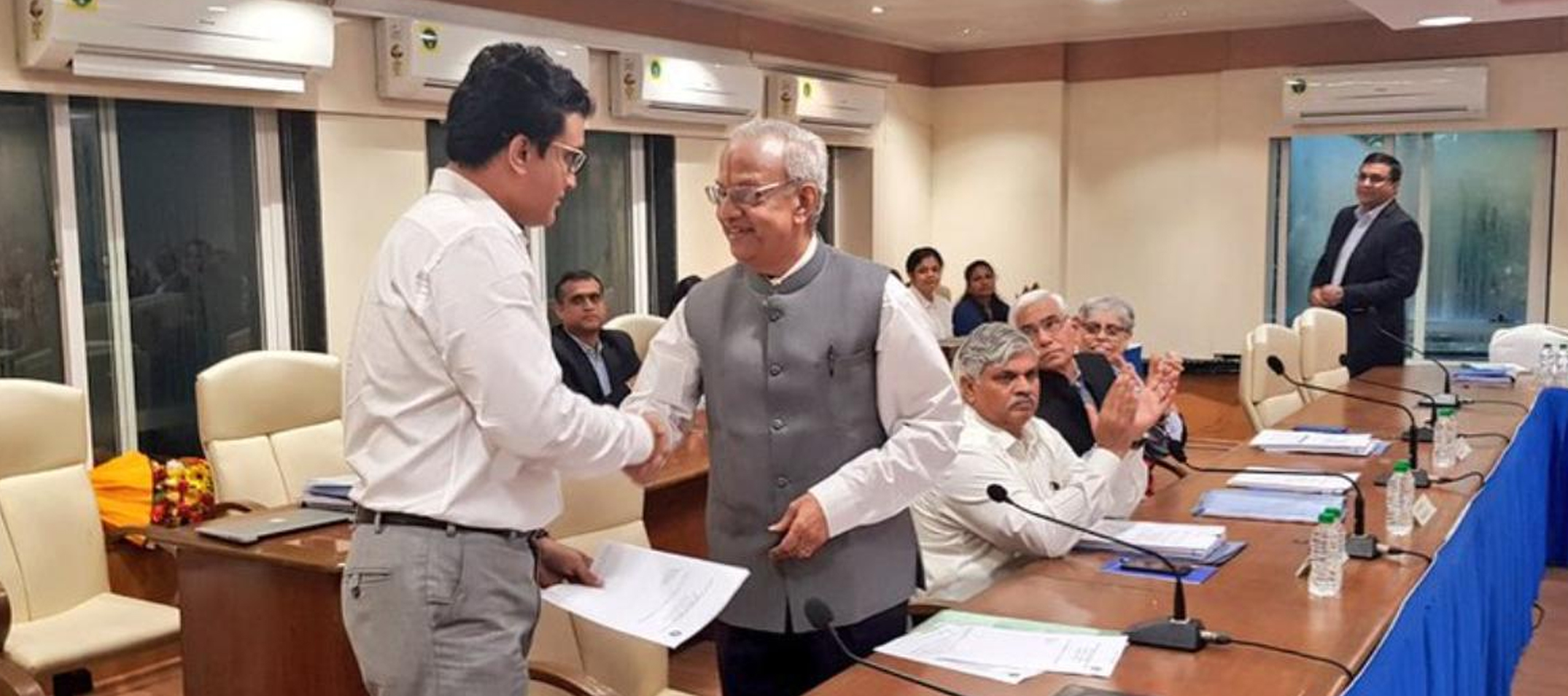
Former India captain Sourav Ganguly has been formally elected unopposed as the new Board of Control for Cricket in India (BCCI) president. Ganguly is likely to serve only 9 months as BCCI president as the "Cooling Off" period clause in the new BCCI constitution makes it mandatory for board officials to step down after 6 years in office. Ganguly, who played 113 Tests and 311 one-day internationals and led India to 21 Test wins, has already been an administrator for his home state association, Cricket Association of Bengal (CAB).
-
Praveen Kumar won the World Wushu Championships
Praveen Kumar, a 22-year-old from Haryana, created history by winning the World Wushu Championships. The Championships took place in Shanghai, China, and Praveen defeated Philippines' Russel Diaz by 2-1 in the 48 kg category to win the gold medal.
-
China to host expanded Club World Cup in 2021
China will host the inaugural edition of the expanded 24-team Club World Cup, FIFA president Gianni Infantino said, hailing it as a "historic decision". FIFA's choice underlines China's growing clout in football and could be a precursor to the country eventually hosting the World Cup proper.
It will mean many of the biggest club teams -- including eight from Europe -- descending on China in June-July 2021.
The current Club World Cup features seven teams including the holders of the UEFA Champions League. Qatar will host the competition this year and in 2020.
-
7th Military World Games being held in China
The 2019 Military World Games (also known as Olympic Games for military) is being held from 18–27 October 2019 in the capital of Hubei Province, Wuhan, China. Its opening ceremony was held on 18 October 2019 and the event was officially inaugurated by Chinese President Xi Jinping. The games are officially known as 7th CISM Military World Games. It is top multi-sport event for military personnel from across the globe. Following the conclusion of 2015 Military World Games (held in South Korea), China won the bid to host the Games for the first time in 2015. Besides being the first international military multi-sport event to be held in China, it is also the largest ever military sports event to be held in China.
For the first time in history of Military World Games, an Olympic village is set up for participating athletes prior to commencement of Games.

